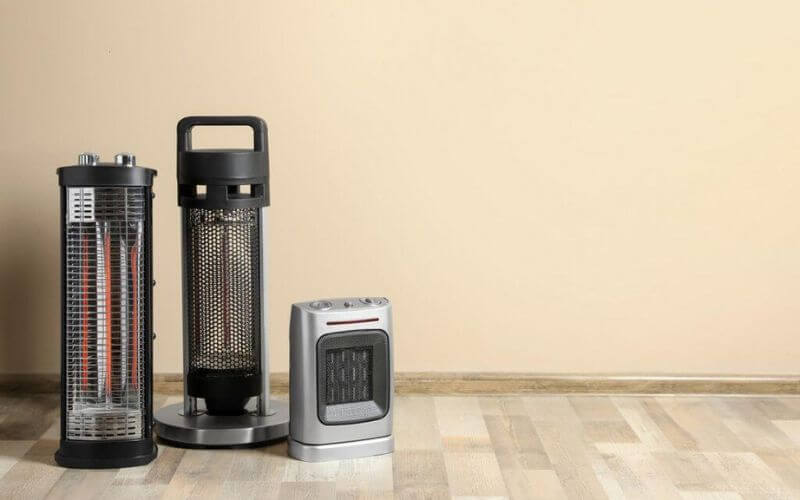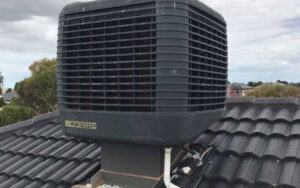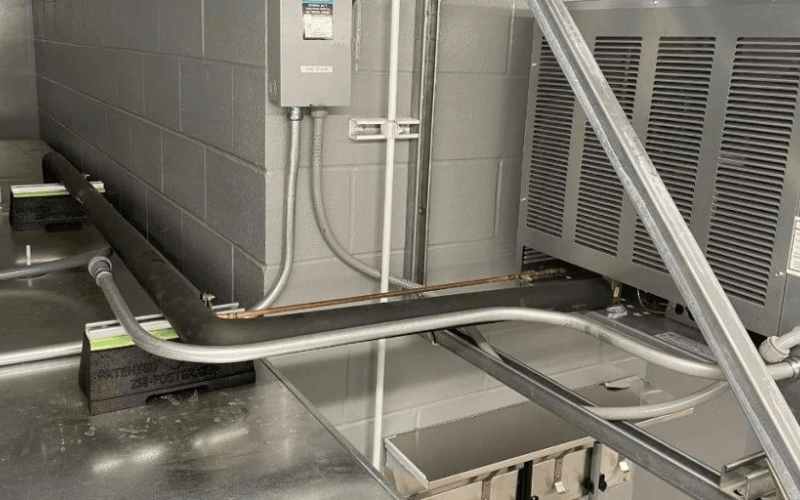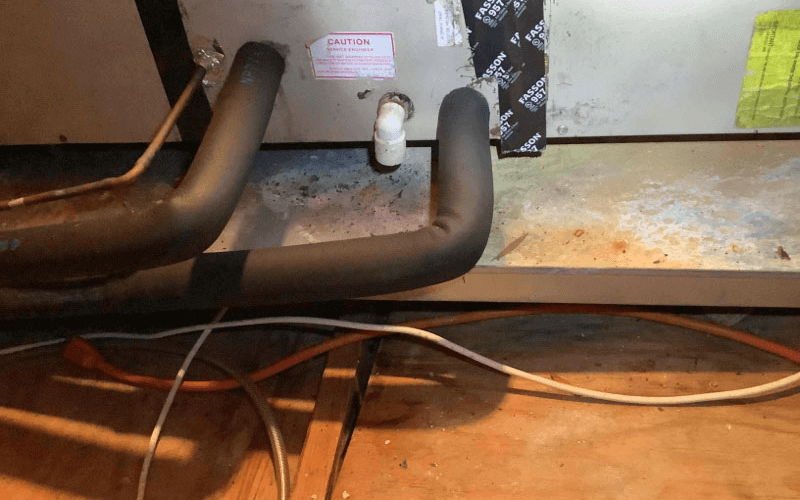During the winter, it is pleasant to bask in the warmth of a space heater, even if it only warms a small portion of your home. But How Many Watts Does A Space Heater Use? Here is what we discovered while researching relevant information.
You might be curious about how much electricity does a space heater use? In the hottest season, the power consumption of space heaters is around 1500 watts. At low volumes, the space heater use 750 watts. Now, are you curious about the running cost of a space heater? What are the benefits and drawbacks of using one? How does it work? What is the comparison to central heating? What is the Most Effective Space Heater for Your Home? And how can protection against associated risks be ensured? Learn all about space heaters by reading on.
Table of Contents
ToggleHow Do Space Heaters Function?
Commonly, space electric heaters are utilized when the primary central heating system is unavailable, insufficient to construct or operate, or prohibitively expensive.
Space heater heat using convection or radiant heat. We recommend using one if you will only be in the room for a short time and are within range of the heater.
Many electric space heater operates simply by being plugged in. Always adhere to the instructions on the packaging.
Also check: Why is Cold Air Blowing Out of Vents when the Heat is On?
| Image | Product | Features | Price |
|
Best Seller

|
Dreo Smart Wall Heater, Electric Space Heater for Bedroom 1500W |
120° Vertical Oscillation, Adjustable Thermostat, |
$129.99
|
|
Best Seller
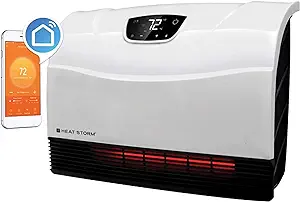
|
Heat Storm HS-1500-PHX-WIFI Infrared Heater |
1500-PHX-WIFI Infrared Heater, Wifi Wall Mounted |
$104.57 |
|
Best Seller
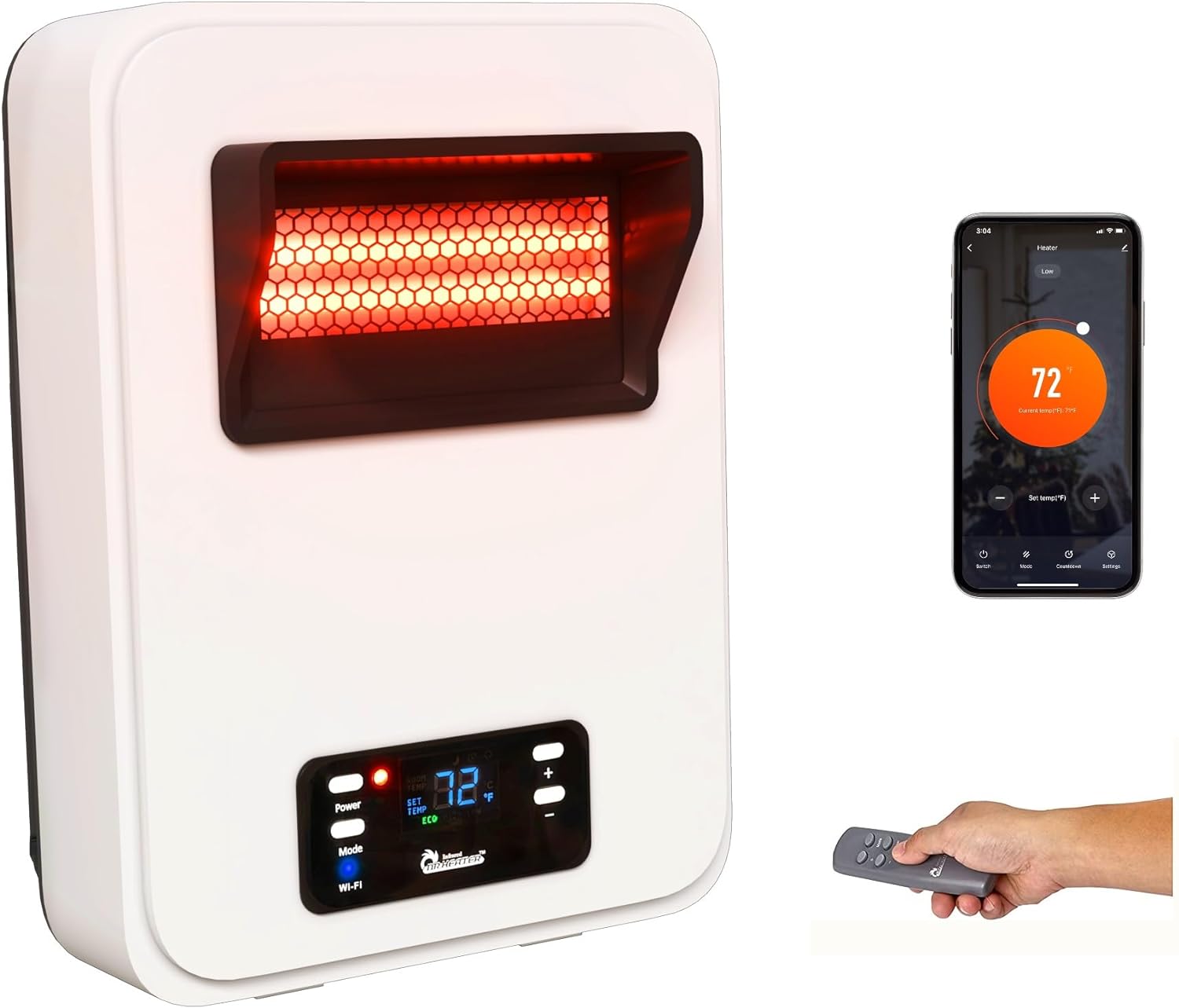
|
nfrared Heater with WiFi – Wall Heater – Electric Heaters for Indoor Use |
Bedroom, Small Room,- Energy Saving 1500 Watt PTC Quartz Heater |
$119.99 |
|
Best Seller

|
|
PTC Ceramic Electric Heater for Bedroom with Thermostat, |
$49.99 |
|
Best Seller
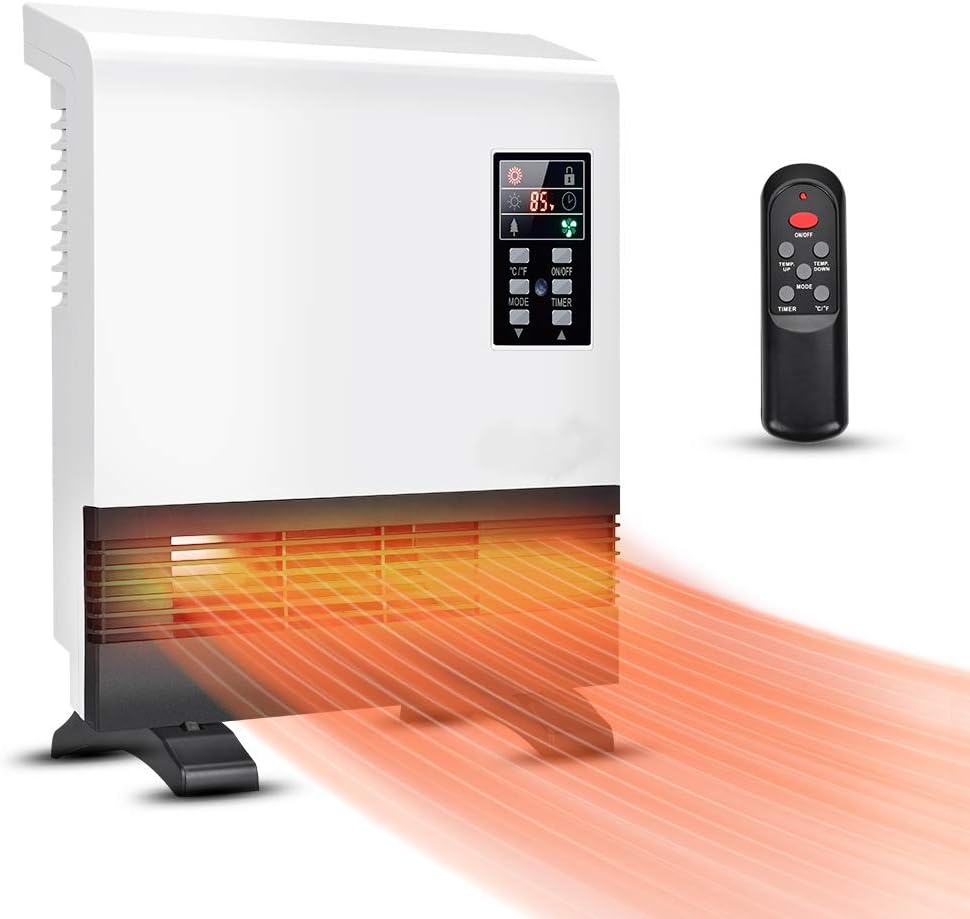
|
Airchoice Electric Heater, 1500W Space Heater, Wall Mounted Room Heater with Stand, |
Energy Saving, Timer, 3 Modes, Quick Heat Electric Space Heater, |
$48.35 |
How Much Does It Cost To Run A Space Heater?
Most space heaters that use 1,500 watts of electricity consumption cost approximately $0.20 per hour. Your daily utility bill is dependent on the duration of room heating. Assume that you utilize heating for 10 hours per day. Considering the kilowatt-hour used, the estimated daily electricity cost will be $2.00.
Furthermore, your heating preferences can impact your electricity cost. The Low Heat Space Heater’s power consumption is 750 watts to operate, saving you fifty percent of the cost and saving you money on your monthly electric bill.
Factors Affecting Watts Consumption
Understanding how many watts a space heater uses necessitates consideration of several factors, including:
Heater Type: The wattage of various types of space heaters varies. For example, Ceramic and infrared heaters frequently have different wattage requirements.
Heating Capacity: The wattage of a heater determines its size and power. Higher wattage typically indicates a more powerful heater capable of heating a larger area.
Configuration and Features: Space heaters have various settings and features, including an adjustable thermostat, fan speed, and oscillation. Wattage usage can be affected by these settings.
Room Size and Insulation: The size and insulation of the room you’re heating can affect the wattage required to heat the space effectively.
Improving the Efficiency Of Space Heaters
To use your space heater efficiently and save energy, follow these steps:
Choose the Correct Size: Choose a heater that is appropriate for the size of the room to avoid wasting watts.
Seal and insulate: Assemble a well-insulated space to retain the heat generated by the heater effectively.
Optimize the settings: Adjust the thermostat and fan speed to the appropriate settings for the current conditions.
When not in use, turn it off: Remember to turn off the heater when you leave the room or when it is no longer needed.
What Are The Benefits And Drawbacks Of Using Space Heaters?
The following list of pros and cons will help you decide whether to purchase a space heater.
Pros:
- Space heaters are significantly less expensive than other types of heaters.
- Space heaters consume less energy than home heaters, resulting in lower utility bills.
- Extremely effective at heating specific areas.Typically compact and portable.
- Particularly in the winter, space heaters are an ideal choice. Modern heating devices are simple to operate.
Cons:
- Space heaters have the potential to overheat and catch fire.
- Burns are also possible if you are too close to the heater.
- Space heaters, particularly older models, necessitate constant monitoring to prevent fire hazards.
- These heaters can only heat a small area.
What Kinds of Space Heaters Are There?
Here are a few examples of electric space heaters to help you select the best model for your home.
- Ceramic heater
- Fan heater
- Infrared heater
- Oil filled heaters
So, let’s examine how these space heaters operate and their pros and cons.
Ceramic Space Heater:
This space heater generates heat with ceramic plates connected to metal coils. When a current is passed through a metal coil, the plate absorbs heat until it can no longer do so, releasing excess heat into the air. Convection space heaters heat in the same way as ceramic heater do.
The primary benefit of this type of space heater is that it heats up immediately. In addition, it is compact and lightweight.
However, this type can only heat small spaces and must operate continuously.
Fan Space Heater:
Fan heaters function similarly to ceramic fan heaters. Instead of a ceramic plate to absorb heat from a metal coil, this type of space heater utilizes a fan to blow heat into the room.
This space heater is inexpensive, portable, lightweight, and small. However, the disadvantage of fan heaters is that heat transfer ceases when the heater is turned off.
Infrared Space Heater:
Infrared heaters warm a room by emitting electromagnetic waves into the air and heating the room’s physical objects. Infrared space heaters are distinguished because they do not heat the air but rather people, furniture, carpets, walls, etc.
The ability to continue heating even when the power is turned off is one of the primary advantages of this model. In addition, since the object absorbs heat, there is no need to block the heat.
However, infrared space heaters can be bulky and only emit heat in one direction. Additionally, it necessitates more devices in the room for optimal performance.
Oil Filled Space Heater:
This form of space heating is referred to as radiator heating because it resembles the radiators found in older homes.
The space heater’s body is filled with insulating oil. Through the fins, oil is heated. Upon heating the slats, the surface temperature rises, and heat is released into the room. Like an infrared radiant heater, this radiant heater remains warm even when the power is turned off. In addition, this type of space heater is highly effective.
However, this type of heating cannot be controlled in terms of heat output. Additionally, this type of space heater can lead to an overheated home.
Panel Space Heater:
Like an oil space heater, the panel space heater emits hot air from the device radiating heat. The primary distinction is that panel heaters use electricity instead of oil to generate heat.
This type is relatively new and gaining popularity rapidly. This category of space heaters includes both wall-mounted and floor-standing models. Its contemporary appearance and refined design make it the ideal addition to your room. However, this type of space heater does not adequately heat the room. Best of all, they eliminate the air’s coldness.
What Is Better, Space Heaters Or Central Heating Systems?
In terms of heating the same amount of space, central heating is more efficient than a space heater. But if your system fails and you cannot afford to keep it running, you can run a space heater and save money on repairs and on the electricity bill. Space heaters are energy efficient and reduce the electricity costs of heating per square foot as compare to the cost to run a central heating system.
What Are The Recommendations For Purchasing Space Heaters?
Follow these guidelines when planning the purchase of a space heater:
- Newer models of space heaters have enhanced safety features. Inspect the heater for the Underwriters Laboratory (UL) label.
- Opt for thermostat-controlled heating to prevent energy waste caused by overheating the room.
- Select the appropriate size heater for the space you wish to heat.
- Position the heater horizontally and away from people.
Also check: How to Turn on a Wall Heater in House?
What Are the Most Effective Space Heaters?
Here are five products to choose from if you are unsure of the best space heater for your needs.
Lasko FH500:
The tower design of the device permits optimal airflow while maintaining a small footprint.
VMH500:
In contrast to conventional heaters, the VMH500 emits a constant heat stream, enveloping the room in coziness. Vornado’s signature eddy heat circulation fills the room with warm air.
DR-998 Dr. Infrared Heater:
The DR-998 Portable Infrared Space Heaters use 1500W and come with Dual Heating Technology with ceramic and infrared heating elements.
Amazon Basics Miniature Space Heater:
It is a personal small space heater enough to be placed on a table or desk.
Honeywell 360° Encircling Heater:
This 360-degree portable heater is ideal for heating small to medium-sized spaces anywhere.
What Are Space Heater Safety Tips for the Home?
Here are some space heater safety tips to protect you and your home from potential dangers.
- Check certifications for heater safety.
- Verify the heater’s safety features.
- Extension Cords and power strips are not permitted.
- Install the space heater in a secure, out-of-the-way location.
- Keep space heaters away from children and animals.
- Position the heater on a horizontal surface.
- Do not cover heating cables in a room.
- If room heating cannot be monitored, turn it off.
- Eliminate overheated heaters.
- Regularly inspect your heating system.
- Keep at least 3 feet away from flammable substances.
- Ensure that your smoke and carbon monoxide detectors are operational.
- Search for indicators of problems.
Final Thoughts:
Space heaters are an excellent alternative if your central heating system breaks down. Additionally, space heaters use 750 and 1500 watts of power to operate. However, their effectiveness is limited to small areas. A larger space heater consumes more energy but has the ability to heat a large room.
However, you must be cautious and aware of the dangers associated with these heaters. If not monitored carefully, it may result in an outbreak of fire.
FAQs
Can a 2000-watt generator run an electric space heater?
In common parlance, a 2000-watt generator can power virtually any small household, RV, or recreational appliance, including a 500-watt portable light source.
What is the running cost of a 1500-watt heater for one day?
The running cost of a 1500-watt heater for 24 hours is $4.80. $11.20 per week (8h/day) to operate.
Do 1500 watts consume a great deal of energy?
The power consumption of 1500 watts space heater is 1500 watts per hour, equivalent to 24 hours, to heat a small room. Numerous household items use as much or more energy than 1500 watts, so the energy requirements of heaters are reasonable in comparison.
How much will it cost to run a 1500-watt heater for a month?
The average cost to run a 1,500W Electric Heater in the United States is $0.20 per hour, $6.83 per week (at 5 hours per day), and $22.25 per month (at 5hrs per day for 30 days).
Can I use my space heater throughout the night?
Even though modern heaters have safety features built-in, you should never run a space heater on overnight. Whether your heater is powered by gas or electricity, it contains an element that can ignite a fire, which is a good reason to turn it off overnight.

